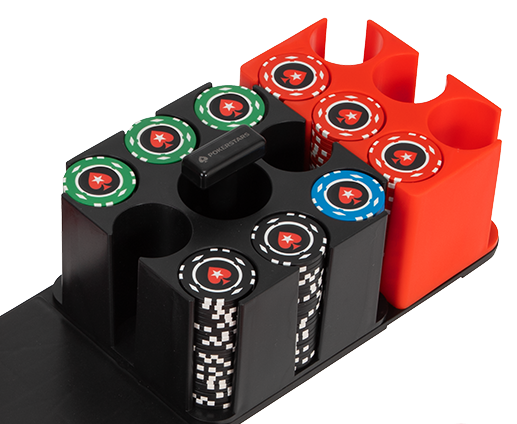Wait, what? Who wants to lose a poker hand?
We play poker to win, right? When would we ever want to lose a hand?
Poker is a game full of smaller games. Each hand stands on its own, but also occurs within a sequence of other hands that provide meaningful context.
Other games are similar in this respect. For instance, you could say American football is a game that features a series of mini-games, in this case each individual play.
An average NFL game has around 130 plays, perhaps a few more depending on the pace with which teams play. A college football game (with slightly different timing rules) usually has around 140 or a few more.
In both poker and football, players almost always enter into each individual hand or play with an intention to succeed as much as possible. In poker, winning as many chips as you can is generally ideal. In football, scoring a touchdown is typically the most desired outcome.
But there are exceptions. A couple of football games from this past weekend highlighted how there are rare instances when a team does not want to score a touchdown, because doing so actually reduces that team’s chances of winning the game.
The scenarios that arose in those games remind us how in poker, too, there really are times when trying to win a given hand isn’t necessarily the winning play.
The “accidental” touchdown that loses a game
The first example came in near the end of a college game on Saturday between the Penn State Nittany Lions and Indiana Hoosiers. Some of the articles describing the play have referred to it as the “accidental” touchdown.
Penn State was leading 21-20 and had a first down at the Indiana 14-yard-line with a little under two minutes to go. They snapped the ball and handed it to running back Devyn Ford who found himself suddenly stepping through a huge hole in the line of scrimmage. Before he knew it, Ford crossing the goal line untouched for a TD.
The Indiana defense was terrible on that play. Actually, that was the plan.
With just one timeout left, the only realistic chance Indiana had to win was to let Penn State score a touchdown.
Had Ford stopped running just short of the goal line and kneeled down to end the play, Penn State would have had a first down. Then Indiana would have had to use its final timeout, and Penn State would have essentially been able to run out almost the entire clock to preserve their one-point victory.
In other words, not scoring would have essentially assured Penn State of the victory. Scoring a TD left the game in doubt.
Penn State went for the two-point conversion and made it, making the score 28-20. Then Indiana drove the length of the field for a TD and a tying two-point conversion of their own to send the game to overtime with the score 28-28. There the Hoosiers went on to win the game 36-35 on another dramatic goal-line play.
Something similar happened on Sunday in an NFL game between the Atlanta Falcons and Detroit Lions. Down 16-14 with less than a minute to go, Atlanta running back Todd Gurley scored a go-ahead touchdown.
Again, the defense let their opponent score, because otherwise Atlanta could have run the clock all the way down and kicked an easy field goal to win without giving Detroit back the ball.
In fact, on the play Gurley tried to fall down before the goal line, but his momentum carried him into the end zone. The Falcons had even discussed beforehand the need to avoid scoring a touchdown.
Again, scoring a TD — usually the best of all outcomes on a play — ultimately lost a team the game. Given the opportunity, the Lions took advantage. Detroit stormed down the field and scored a TD on the game’s very last play, winning 23-22.
Not winning now in order to win (bigger) later
Those plays got me thinking about instances in poker when players don’t necessarily play to win a given hand, because doing so is a preferable strategy that increases the likelihood of securing a greater profit.
Like football games, tournaments feature clocks counting down. The simultaneous counting down of the number of players remaining in the tournament field likewise creates situations resembling the one I’m describing where not winning a particular hand might in fact be a good thing.
That is to say, in tournaments situations do arise in which it’s okay to lose a battle in order to have a better chance of winning the war.
The money bubble creates many of these spots. The most familiar one to most is probably the phenomenon of two players “checking it down” when a third one is all-in, choosing not to battle over the pot in order to increase the chance of knocking out a player, bursting the bubble, and ensuring a cash.
Sometimes when the bubble is approaching or has arrived, a player with a deep stack who is happily applying pressure to a table full of shorties might resist eliminating an opponent in order to “preserve” the bubble. That’s a bit of an advanced strategy, but it is somewhat analogous to a football player stopping short of the goal line and not scoring despite the fact that he can.
Looking around the table at all of those short stacks folding hands and letting the big stack take their blinds and antes provides another example of players not trying to win an individual hand as part of a broader effort to win the tournament.


You can’t win ’em all… nor do you want to, really
Say we are one knockout from the cash and I am down to a few big blinds. I am hoping someone busts at another table before I do, thereby getting us into the money. I watch the big stack open from late position as he always does, and it folds to me in the big blind where I have been dealt king-jack.
I could call. I could even raise. In fact in this particular situation my hand is likely stronger than my opponent’s given the extra-wide range with which he’s been opening.
But “scoring” in this hand isn’t as important as preserving my tournament life and perhaps earning a much bigger score once we’re in the money.
Final tables where ICM considerations can affect decision-making also often produce similar situations. There, too, in a given hand, players might choose less aggressive options that suggest they are not “playing to win” a given hand, since doing so does increase their probability of winning the tournament.
Is there ever a reason to fold pocket aces preflop?
The situation arises in satellites fairly frequently as well, especially around bubble time. Satellite strategy even sometimes presents the ultra-unusual situation where folding pocket aces is in fact the recommended play.
We could also talk about examples of hands you don’t want to win in cash games as well.
I’m thinking of the friendly chopping of the blinds, sometimes part of a larger strategy to keep the player on your left on your good side. Or perhaps more complicated, “meta-game” scenarios in which players wish not to discourage lesser-skilled, better-bankrolled opponents from leaving the game.
You get the idea. Like football (and other games), poker creates situations where making one winning play is somehow not the winningest move.
Can you think of other examples in poker of hands you want to lose? Share them in the comments below.
Back to Top











